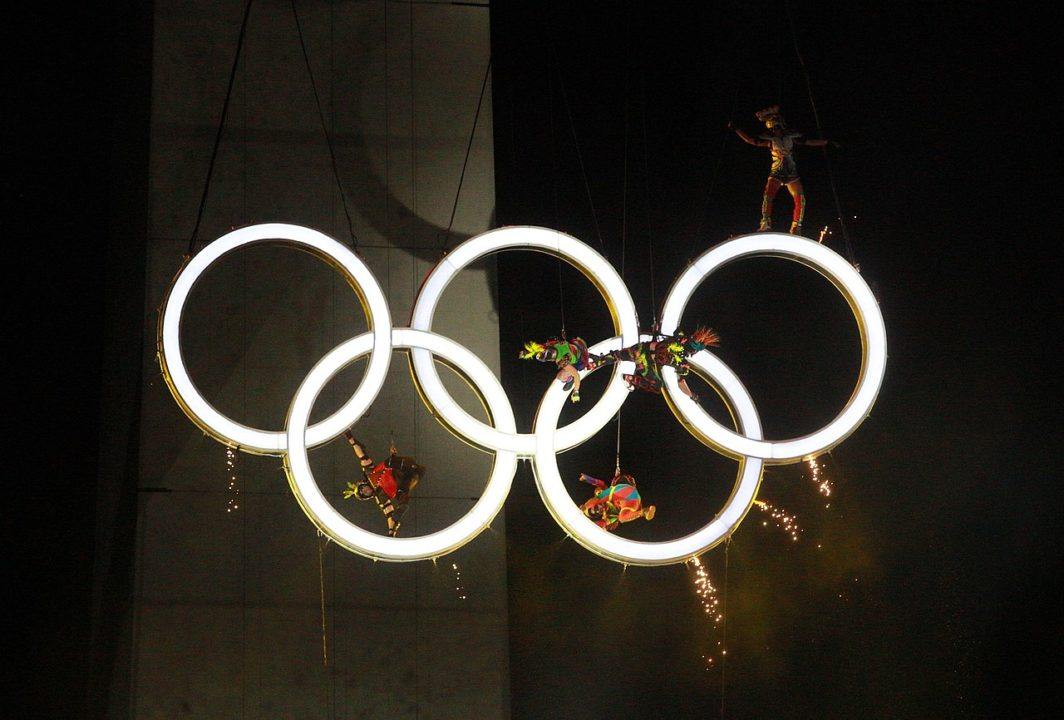SwimSwam will periodically update you on the biggest news around the Olympic and Paralympic world, outside of aquatic sports. Read on to learn about Indiana allowing sports betting on Olympic events, the Team USA delegation going to Beijing, and the COVID cases beginning to pop up in Beijing.
Indiana will allow sports betting on seven Olympic events.
Indiana casinos and sports betting apps will permit betting on the following sports: alpine skiing, bobsled, cross-country skiing, curling, ice hockey, short-track speed skating, and speed skating.
For those looking to make bets, don’t forget that many sports will have already occurred once televised in America. Indiana legalized sports betting in 2019.
The United States is bringing its second largest Winter Olympic delegation to Beijing.
In a press release on Monday, The United States Olympic and Paralympic Committee (USOPC) announced the 222 American athletes that are attending the Beijing Winter Olympics. Competition is set to take place from February 2-February 20, with opening ceremonies on February 3. The largest American delegation was 228 athletes at the 2018 PyeongChang Olympics. Team USA features 99 returning Olympians. A few athletes are returning to their fifth consecutive Olympics: Shaun White (halfpipe snowboarding), Lindsey Jacobellis (snowboardcross), Kate Uhlaender (skeleton), and John Schuster (curling)
Team USA also features 18 returning Olympic medalists, of which 11 are gold medalists. The roster features 107 women and 115 men. 31 states will be represented with California being the largest contingent (31 athletes).
The youngest member of Team USA is 16-year-old Alyssa Liu, who will compete in figure skating. The oldest athlete is Nick Baumgartner (snowboarding), who recently turned 40. He’s competing in his fourth Olympics. Uhlaender is the oldest woman at 37 years old.
54 American athletes will make their Olympic debut in Beijing. Many members of Team USA in Beijing were NCAA athletes across all divisions (I, II, III). Four teams have at least 75% collegiate participation: men’s and women’s ice hockey (100%), bobsled (83%) and biathlon (75%). More than one-third of the women’s ice hockey team competed at the University of Minnesota, while U.S. bobsledders competed collegiately in five different sports: track and field, football, softball, lacrosse and basketball.
Later on Monday, the USOPC issued a new press release announcing that Team USA received a quota spot for women’s ski jumping and added Anna Hoffmann to the team, which brought the total delegation to 223 athletes. On Tuesday, the roster size was brought back down to 222 because alpine skier Breezy Johnson withdrew from the Olympics after leg injuries from two crashes in January would not heal in time to compete in Beijing.
There have been 72 COVID-19 cases detected among the Olympic staff.
Olympic organizers have confirmed 72 COVID-19 cases among the 2,586 that have traveled to China for the Olympics, according to a press release from Sunday.
In Sunday’s report report, of the 171 athletes that have arrived in Beijing, none have tested positive. According to Olympic personnel, anyone involved with the Games (athletes, coaches, staff, volunteers) are being secluded from the rest of Beijing through a “closed loop system.”
China has very strict COVID-19 protocols called “COVID Zero,” which is an effort to mitigate the virus. To enter the “closed loop” system, Olympic personnel must test negative twice within 72 hours of departure to China, and continue testing negative every day. Those unvaccinated will also need to provide an immunoglobulin antigen test 72 hours before departure, and are required to quarantine for 21 days upon arrival to China.
If someone tests positive, even asymptomatically, or is exposed to the virus, that person is immediately sent to an isolation facility. To be released, someone who tested positive must wait 10 days, if symptomatic, and pass PCR tests for three consecutive days. PCR tests are known for their sensitivity, and even those who never show symptoms may have a positive PCR result for many days, if not months. Most major sports leagues in America allow athletes to return to competition five days after a positive test result, as long as the athlete is symptom-free.
The Tokyo Olympics, participants were required to download Japan’s COCOA health reporting app, and were required to test at least every four days while at the Olympics. Athletes were also instructed to avoid physical contact with others, and avoid public transportation. Athletes were only allowed to use dedicated games vehicles, and could only visit Olympic official venues. Athletes were not allowed at gyms, bars, tourist areas, shops, or restaurants.
Athletes set to compete at the Olympics next month have recently tested positive, but had not yet arrived in China. American Bobsledder Josh Williamson tested positive for the virus on Wednesday from the United States. Also on Wednesday, two members of Norway’s cross country skiing team tested positive while at a training camp in Italy.

Glad to hear it!